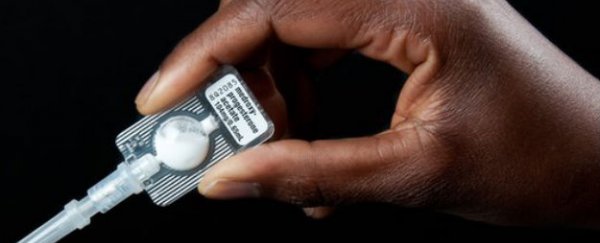Sayana Press is a new injectable contraceptive that costs just one dollar, and lasts for three months. Developed by US drug company Pfizer, it's been distributed throughout Burkina Faso - a landlocked, drought-stricken country said to be poor, even by West African standards - thanks to the involvement of the Bill and Melinda Gates Foundation, US drug company Pfizer and the Children's Investment Fund Foundation.
If all goes well in Burkina Faso, Pfizer has guaranteed that women in Niger, Senegal and Uganda will gain access to Sayana Press, followed by the rest of the world's poorest countries over the next five years.
The injectable is not just any old syringe - it's much safer and easier to use than that. The technology is called Uniiject, and it's a pre-packaged device that provides the exact dosage required with a simple squeeze of bubble at the top. Very little training is required by health professionals to use it, it cannot be spilled, and it cannot be used again for illegal drug injection. Each one costs just one dollar.
The technology has been used before to inject hepatitis B medications in Indonesia, but this is the first time it's been used to deliver contraceptives.
"Normally for injections you have to put them in someone's bottom, or the top of their leg, but with this - you use the arm," Kadidia Diallo, a nurse working in Burkina Faso told Jane Dreaper at BBC News. "That's an advantage for women living in the bush. Many women don't come forward for injections if they have to pull their dresses up - but this is more discreet."
According to Dreaper, the World Health Organisation (WHO) has estimated that a staggering 222 million women in developing countries around the world have said they'd like to stop or delay pregnancy, but for various reasons are not using any form of contraception.
The results have so far been very positive in Burkina Faso, with Gates Foundation-funded site, Take Part, reporting that nearly 6,000 women have used the contraceptive, and for almost a quarter of them, it's the first contraceptive they've ever taken.
"When women are able to plan their families, they are more likely to survive pregnancy and childbirth, to have healthier newborns and children, and to invest more in their families' health and well-being," said Chris Elias, president of Global Development Programs at the Gates Foundation, in a statement.
